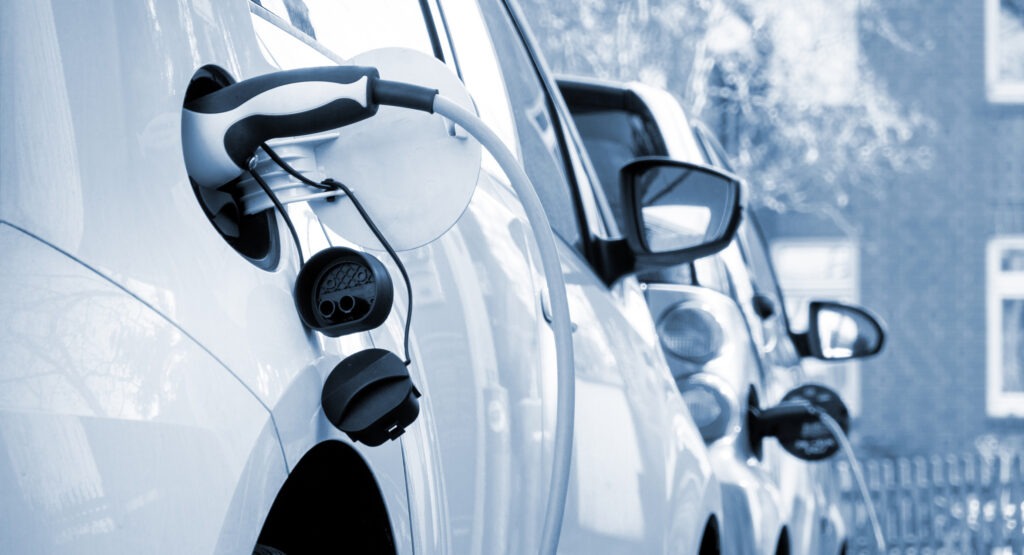EVs make up 24% of French new-car registrations in July
22 September 2023

Electric vehicle (EV) registrations continue to rise in France and made up nearly a quarter of the market in July. José Pontes, data director at EV-volumes.com, reviews the numbers.
The EV market, made up of battery-electric vehicles (BEVs) and plug-in hybrids (PHEVs), saw 30,940 new units take to French roads in July, up 54% year on year.
Making up 12% of the overall market, 16,883 new BEVs were registered, up 31% year on year. Meanwhile, PHEVs accounted for 11% of all French new-car registrations, with 14,057 units, up 95% compared with July 2022.
All-electric models once again outsold PHEVs in July, making up 55% of the EV market compared to the PHEV share of 45%. This split becomes more pronounced between January and July, with BEVs taking 63% of the EV market and PHEVs 37%. All-electric vehicles can be expected to keep gaining ground throughout the year.
Dacia springs ahead
July’s best-selling EV was the Dacia Spring, with 2,127 registrations. The car profited from an off-peak month for the Tesla Model Y which, nevertheless, recorded 1,631 deliveries. The Fiat 500e took third with 1,251 registrations.
But the surprise of the month came from the Peugeot 308. Despite not benefitting from volume numbers for the BEV version (38 registrations), its PHEV powertrain recorded 1,090 deliveries, just six units below its record.
So, with 1,128 units, the 308 jumped into fifth position, just behind the Peugeot e-208 EV in fourth (1,185 registrations). It also managed to stay ahead of the MG4 (sixth, 1,083 registrations) and the Renault Megane EV (seventh, with 998 registrations).
This C-segment win for the 308 means a lot to Stellantis, especially as the BEV version is yet to be deployed in significant numbers. It highlights that the model can compete in its segment with both Renault and the Chinese competition.
The Volkswagen (VW) Tiguan PHEV managed to reach ninth with 767 registrations, confirming the recent popularity of the German SUV in France. This could also be the result of the carmaker’s backlog clearing as its supply of parts improves.
In the second half of the table, the Cupra Formentor PHEV crossover made it to 11th with 641 units. Still looking at the crossover-SUV market, the 13th-place DS 7 PHEV recorded 576 deliveries, confirming it as the premium brand’s leading model.
Just below the top 20, Peugeot had the attractive 408 PHEV fastback-crossover reach 323 registrations, while the Range Rover Sport PHEV hit 324 units in July. With a 38kWh battery, this JLR model might try for a top 20 position soon.
Both VW Group’s ID.3 (300 units) and ID.4 (310 units) were close to the top 20. However, when combined these BEVs sold fewer units than the Tiguan PHEV, which finished the month a significant distance from the ID models.
These positive PHEV results come despite the removal of purchase incentives at the end of 2022. While this demand was not incentive-derived, the French malus system remains in place, taxing the most emissions-heavy vehicles. This means there are still some incentives for PHEV purchases, as the powertrain still benefits from lower taxes than a pure petrol or diesel model.
Tesla’s buffer
Between January and July, the Tesla Model Y had enough advantage over the runner-up Dacia Spring to maintain the lead. With the crossover likely beating the Romanian EV in the next couple of months, the Model Y looks set to be this year’s best seller. This would be a first for the Model Y, but the second trophy for Tesla (having previously won the title in 2021 with the Model 3).
Still on the podium, the third-place Fiat 500e gained more ground over the Peugeot e-208 EV, keeping hold of the bronze medal. Tellingly, if the results remain the same until the end of this year, 2023 would mark the first time no domestic EVs made it into France’s top three.
The Peugeot 308 was up to ninth, at the expense of the Peugeot 3008 PHEV. The Renault Zoe has not been having a great year so far having dropped again, this time to 12th. Additionally, it did not make it into July’s top 20. This was a significant fall from grace for a model that had previously won the best-seller trophy in France eight times.
In the second half of the table, there were several position changes. The Mini Cooper EV climbed to 14th, the VW Tiguan PHEV improved five positions to 15th, and the Kia Niro jumped three spots to 16th.
Local brands subdued
Looking at the brand ranking, Tesla managed to stay on top, with 12.2% of the EV market in July, with Peugeot also taking 12.2%. In third, Renault (8.3%) has fallen behind the leading two and may need to keep an eye on its value-for-money brand, Dacia (7%), which could displace it in the future.
Fifth-place MG (5.7%) put some distance between itself and sixth-place Fiat (5.5%, down from 5.7%). Considering the current strength of MG’s line-up (based especially on the popular MG4), it could challenge Dacia for fourth in a few months. MG only needs to scale up production to meet the overwhelming demand for its hatchback.
Looking at manufacturing groups with brands combined, Stellantis was the major force in the French figures. However, it did lose some market share in July, dropping from 29% in June to its current 28.6% in July.
As for the Renault–Nissan–Mitsubishi Alliance (16%, down from 16.2%), its share continued to decline, with sales slipping in every brand except Dacia. With the Renault 5 still a year away and little else to save sales until then, hard times await the Alliance. Tesla came third, with 12.2%, and will be keeping a close eye on second place.
Off the podium, VW Group came in fourth, with a 10.5% share, up from 10.4% in June. It benefitted from the namesake brand’s resurgence, thanks in no small part to the recent registration surge of the Tiguan PHEV. That has allowed VW Group to keep some distance between itself and fifth-place BMW Group (7.1%) and sixth-place Hyundai Motor Group (6.8%).



